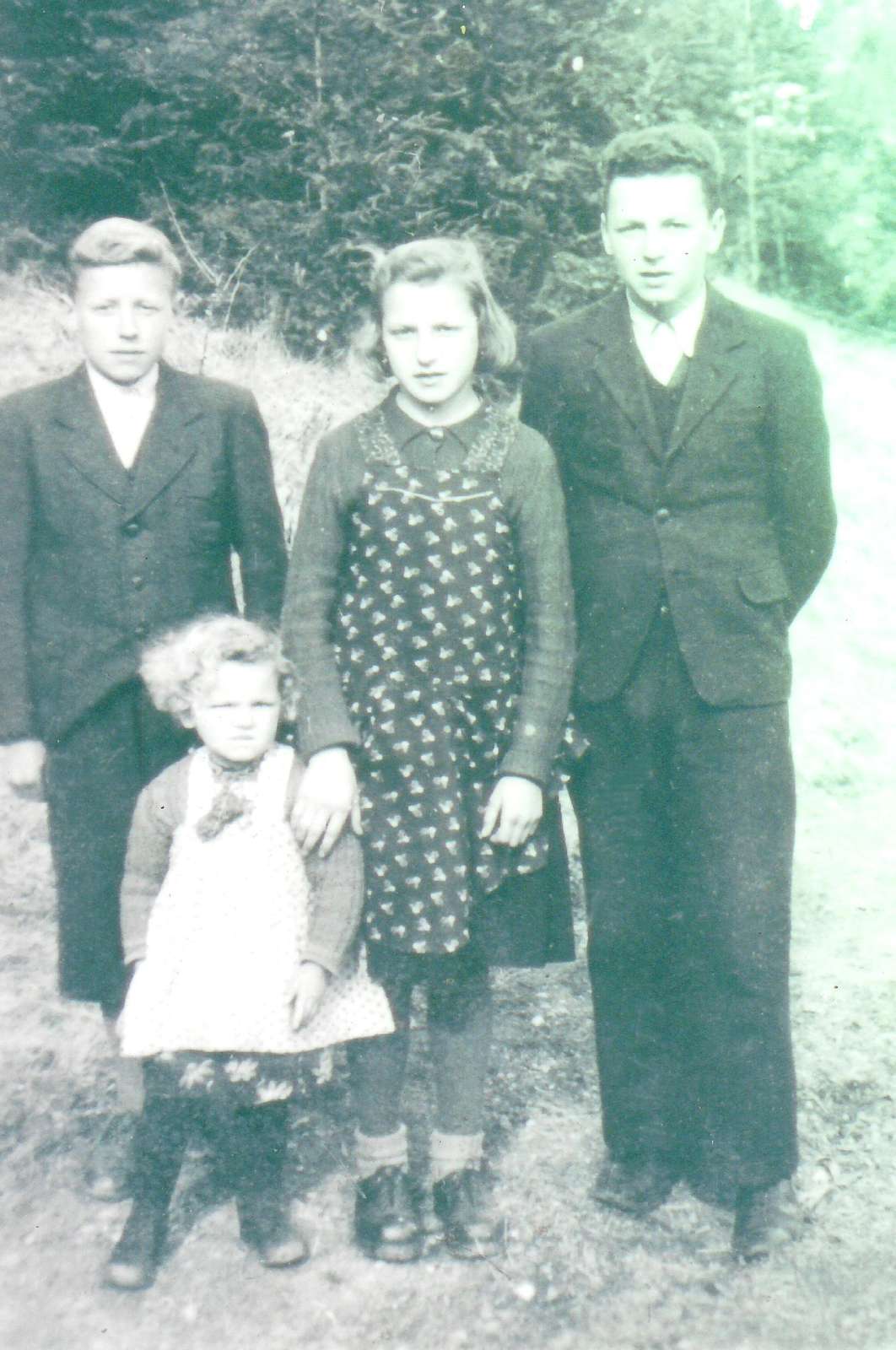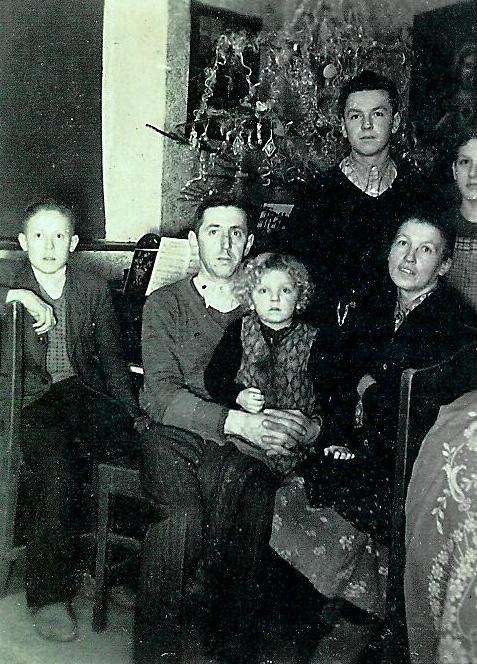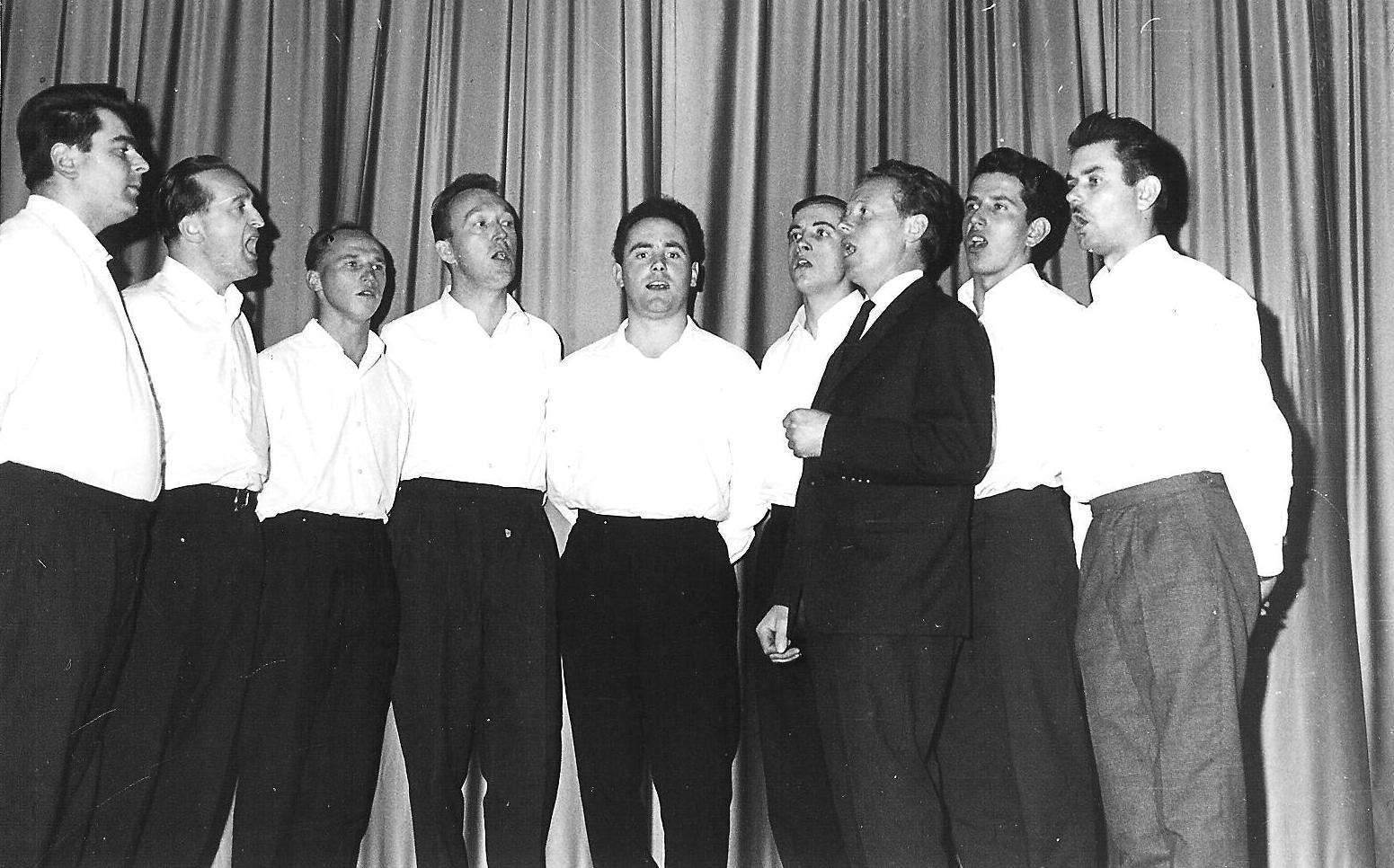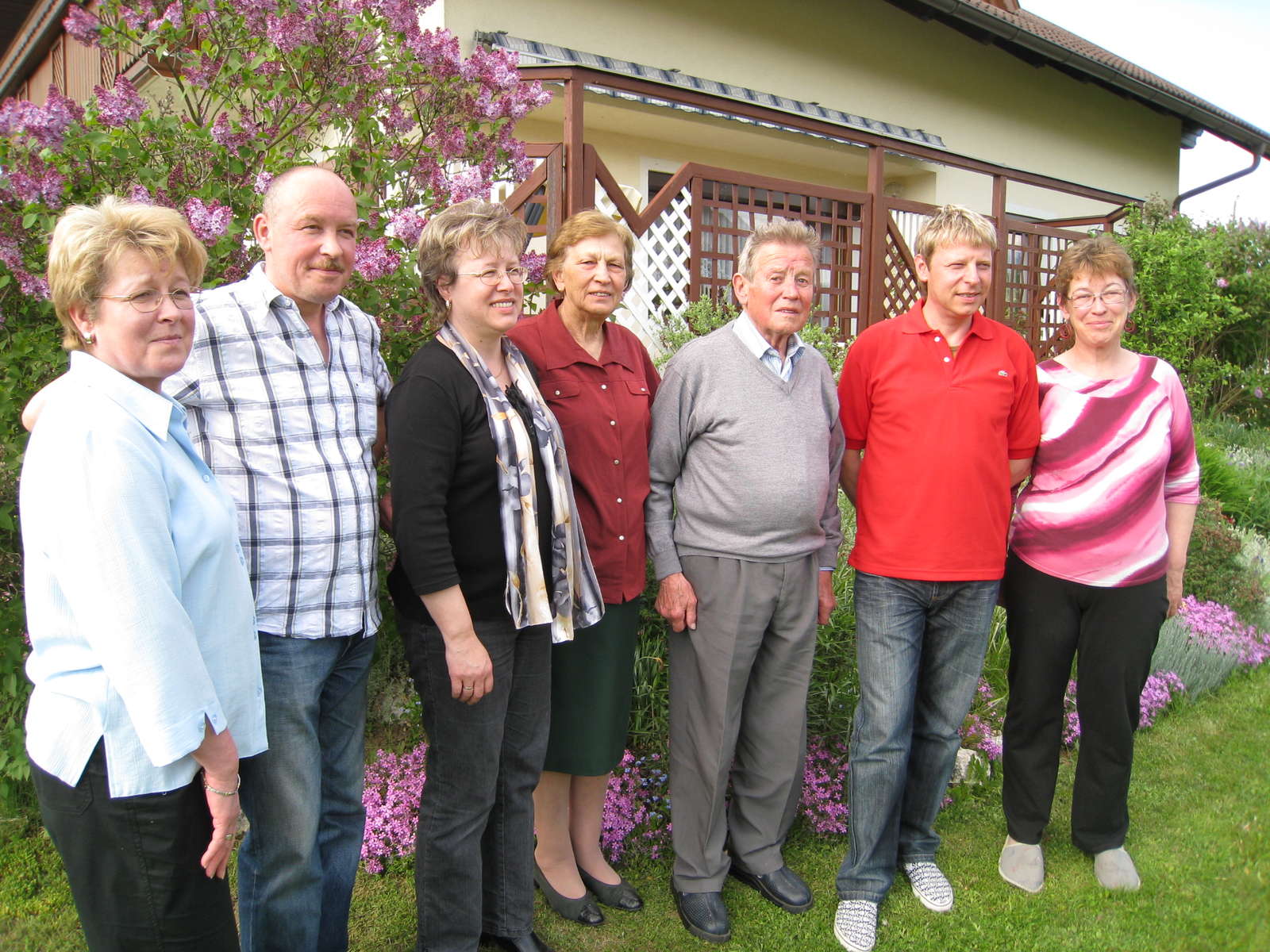Johann Kežar
Our area was called "bandit-land"
Johann Kežar was a member of the Carinthian Slovene Community and was born on 23rd September 1928 in Horzach/Horce, Carinthia.
As a child he had to work on the farm with his mother and siblings, since his father had been conscripted into the army. In addition to the fears for his father, there was also the fear of immanent resettlement and the mental strain caused by constant house searches by the police and Gestapo, as partisans regularly stayed with the Kežar family. One of his brothers also joined the partisans. Johann Kežar was sent to the Labor Service, which it emerged was actually preparation for military deployment. Mr. Kežar suffered greatly as a result of all these strains and his worry for his family.
I was born on 23rd September 1928 in Horzach in the Municipality of Rückersdorf (today the Municipality of St. Kanzian). We were four children. I am the second eldest. My parents owned a small farm. When the Second World War broke out, initially I stayed at home. I was still at school. When I went to the elementary school in St. Primus in 1934, the head teacher spoke Slovenian to us – no one could speak German. After 1935, we had to speak more German at school. In 1942, the armed forces report was read out every morning.
In 1941, my father was conscripted into the German Armed Forces. He was in the Air Defense in Nuremberg for a while, then in Dnjepropetrovsk in Russia and finally in St. Andrä in Lavanttal.
My mother was at home alone with us children. We didn't know how father was getting on. My brother studied in St. Paul, he is a year older than me. I can still remember how difficult it was running the farm alone with my mother. The work was tough, but we had to survive somehow. We also had to deliver a lot of products (milk, butter and other things). There wasn't much left for us to eat. We were starving and constantly feared for our father.
Partisans often came and hid at our house. They asked for food. One time, they were hiding in our attic while the police were searching the farm for them. Mother was constantly interrogated and pressurized. We were suspected of working with partisans. The pressure, the constant house searches, they were enough to destroy you. I was astonished at how strong my mother was.
In December 1944, I was sent to a defense training camp in Eberndorf, where I stayed for a month. Afterwards, I had one month's holiday. In January 1945, partisans were hiding in our house again. They left again the next day. I gave my skis to one of the men because it had snowed so much. Two kilometers away from us, the Gestapo surprised the partisans. They shot one and took the other prisoner. I was terrified that the imprisoned partisan would give me away. He had my skis. It would have been terrible for us. Two days later, the Gestapo came and ordered me and a neighbor to bury the dead partisan. That was a terrible mental ordeal for me.
In February 1945, I was sent to the Labor Service in Hermagor. It wasn't labor at all, it was training for military deployment. We weren't given a single spade, just weapons. Then I was sent to Neumarkt in Styria, also in the Labor Service. We were often encouraged to join the SS and some people did this. I was always hungry and tortured by the fear for my siblings and parents. One time, my mother sent me a loaf of bread. I can still remember how good it tasted to me and my comrades. Once, we wanted to escape but an acquaintance advised us to wait. He had access to information. If we had escaped, I don't know how it would have ended. When the war was over, I was allowed to return home. The journey took almost two days. My father also arrived home at the same time.
In spring 1944, my brother Josef was sent to join the Air Defense in Seebach near Villach. After his home leave, in summer 1944, he joined the partisans. This worried us immensely. Our farm was often searched by the Gestapo and mother was often interrogated, because they thought that at some point my brother Josef would appear at home. If they had found him we would definitely have been resettled. Our area was called "bandit-land".
My brother, who returned home after the war, never recovered his health and passed away in 1986. The pressure of "Carinthian, speak German", weighed on me my whole life. Even after the war, our cultural events were repeatedly destroyed by organized Wurfkommandos [1].
Johann Kežar's memories of these events haunted him his whole life. For many years, he was an active participant in the cultural life of the Carinthian Slovenes: as an organist in his local parish and from 1946 to 2008 as the conductor of several choirs of the Slovene Cultural Society "Danica" in St. Primus/Šentprimož. Johann Kežar died on 16th December 2008.
First publication of this article in: Renate S. Meissner behalf of the National Fund (Ed.): Lives Remembered. Life Stories of Victims of National Socialism. Vienna, 2010, pages 220-224.
[1] Violent attacks carried out by German speaking Carinthians on Carinthian Slovenes in the post-war years.





